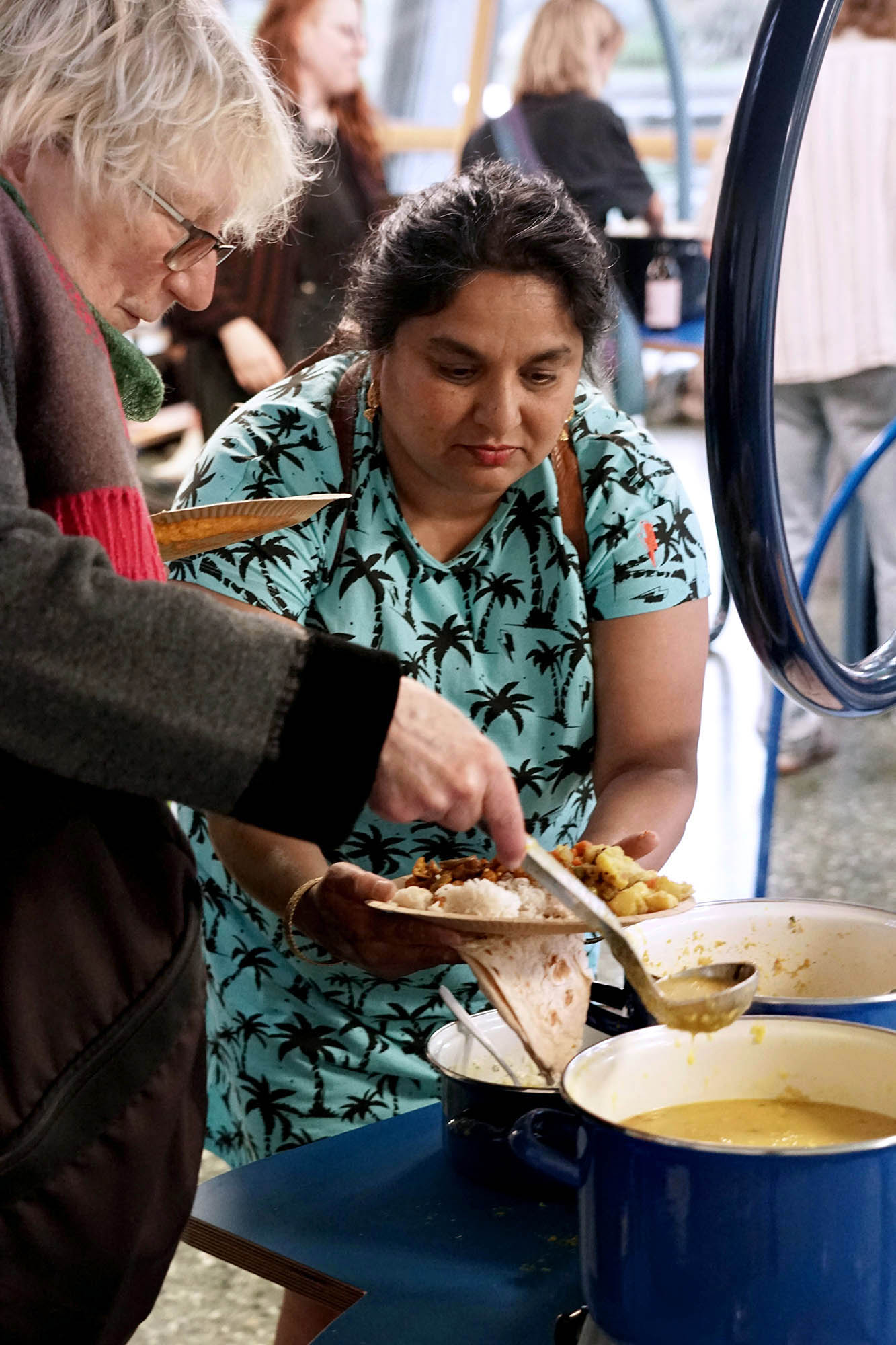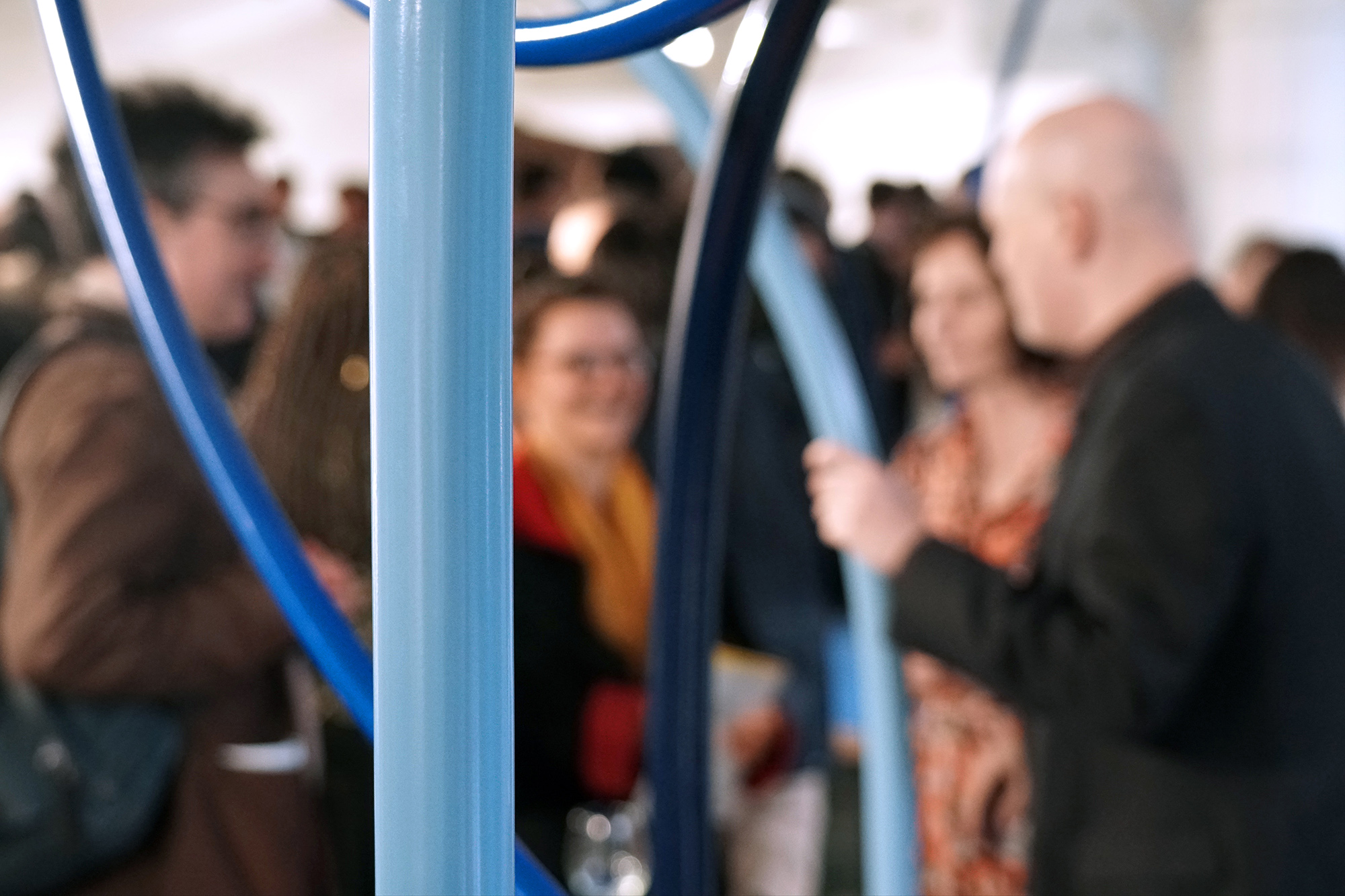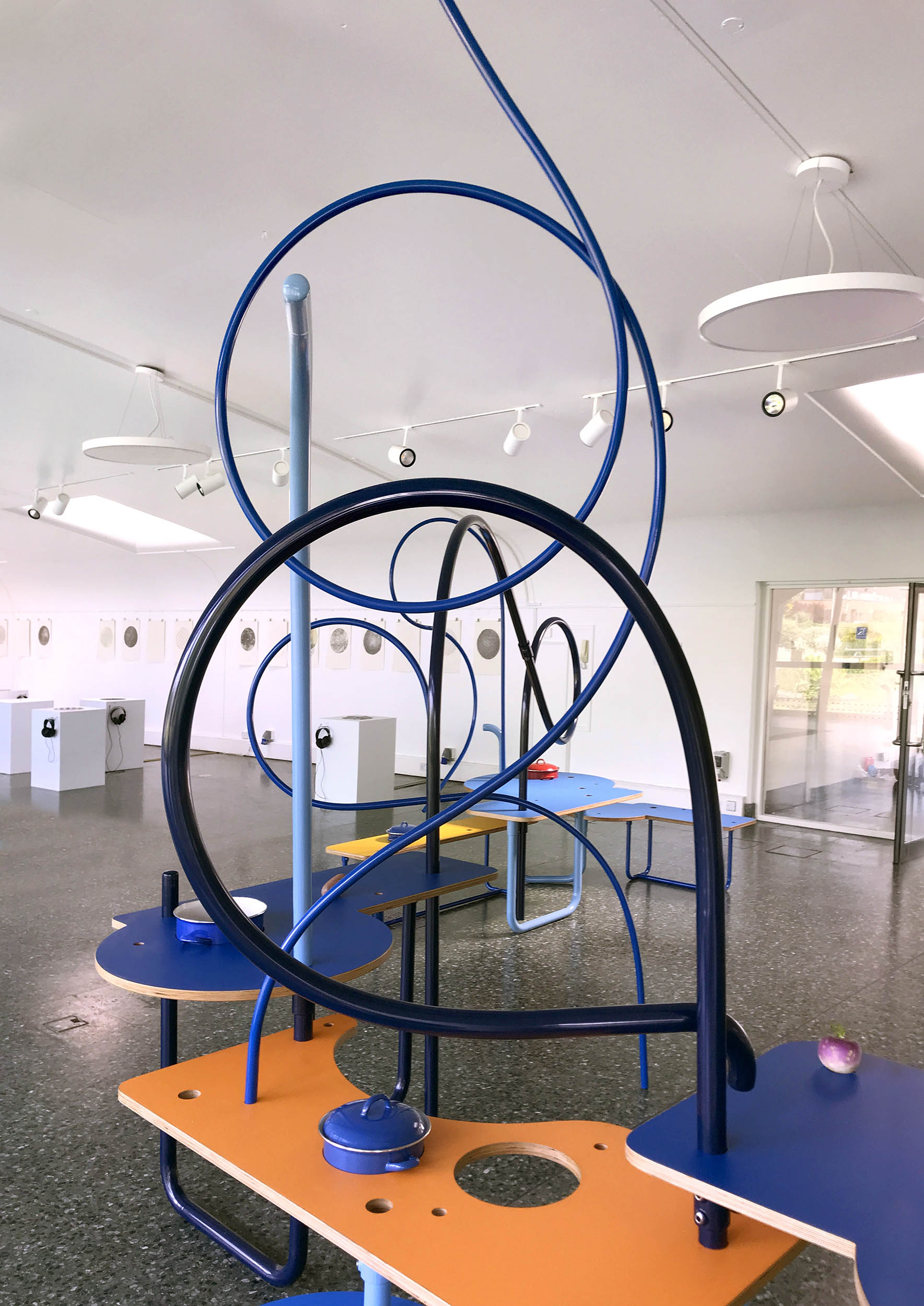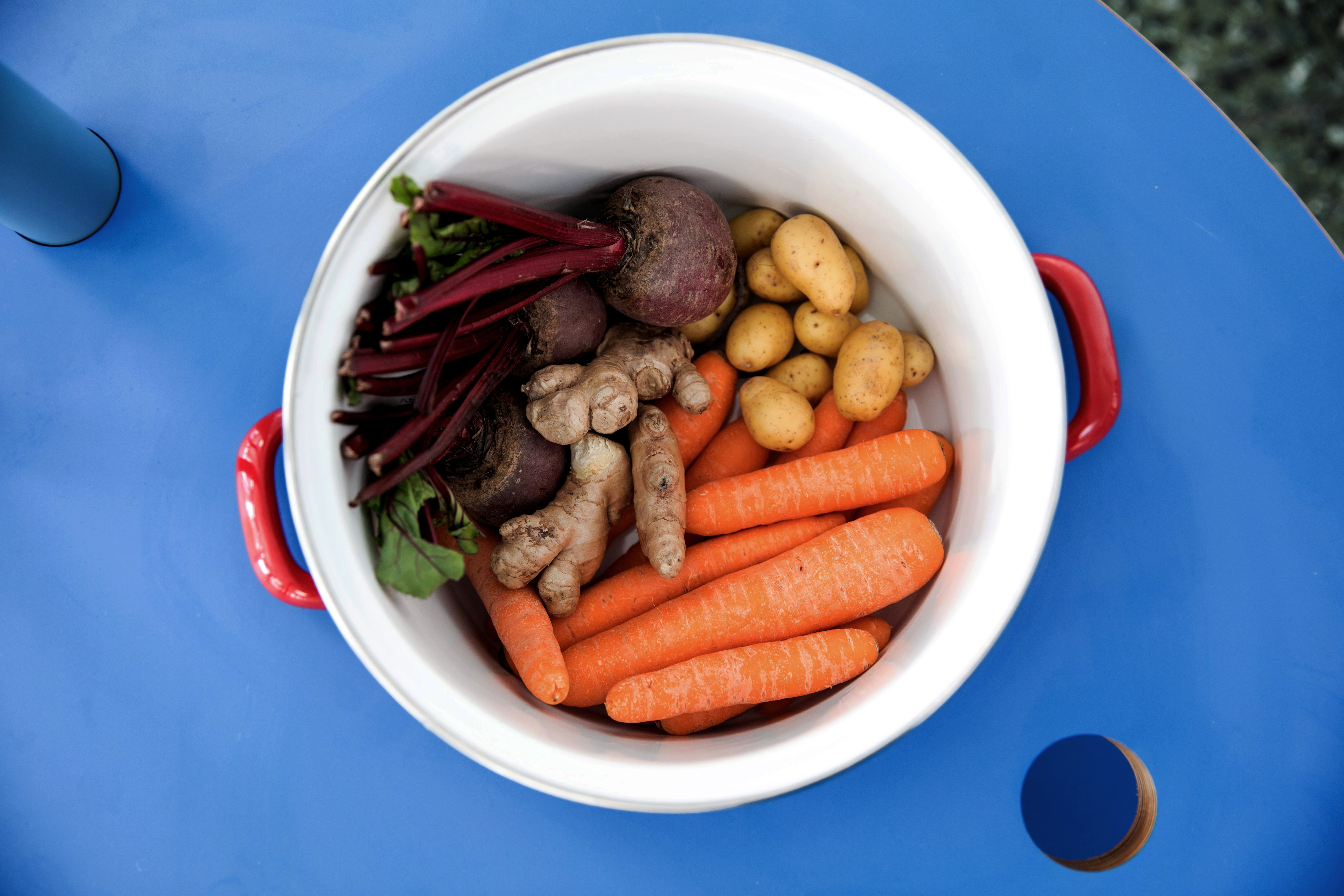
Throughout 2021 and 2022 we have been collaborating with the National Food Service London (NFSL) on a UCL Culture art commission. The NSF is a UK-wide network of community-run food groups aiming to eliminate food insecurity and tackle the interconnected issues of social isolation and food waste. With London’s NFS branch we shaped a participatory workshop which focused on communal eating spaces; in particular, we wanted to think about how to de-stigmatise the often institutional or unwelcoming spaces used for dispensing free-of-charge food. We heard from participants who didn’t have spaces to eat at home, or preferred eating alone as they felt ashamed to eat in front of others. The spaces they jointly imagined and modelled aimed to bring people together - but considered people’s various needs by offering different areas, types of seating and approaches . This co-design process allowed us to understand what is needed in shared food spaces and to create a sense of community among disparate users. The insights fed into the ultimate choice of a mobile installation that can be set up in any location where community food projects want to bring people together.
We came to realise that food is essential to our survival, but is at the same time about much more than maintaining health and bodily functions. It encapsulates personal memories, it facilitates community and a sense of belonging. At the same time, since it is such an important marker of identity, it can also serve to draw boundaries between the self and the Other – and often this boundary is marked by disgust. This means that food can also play a role in social exclusion. When those in need of food assistance are offered meals they do not find palatable, their marginalisation is compounded, as the shame already attached to asking for support is furthered through food that appears tainted. One of the National Food Service’s goals is to combat this stigma, by encountering people who have lived experience of food injus- tice with empathy and by recognising their agency. Rather than charity, the model of community food systems is built on one of agency, participation, and self-determination.
This project was part of a Trellis Public Art Commission and was realised in collaboration with National Food Service London. Another Provision is supported by the Mondriaan Fund, the Leverhulme Trust and UCL Institute for Global Prosperity.













